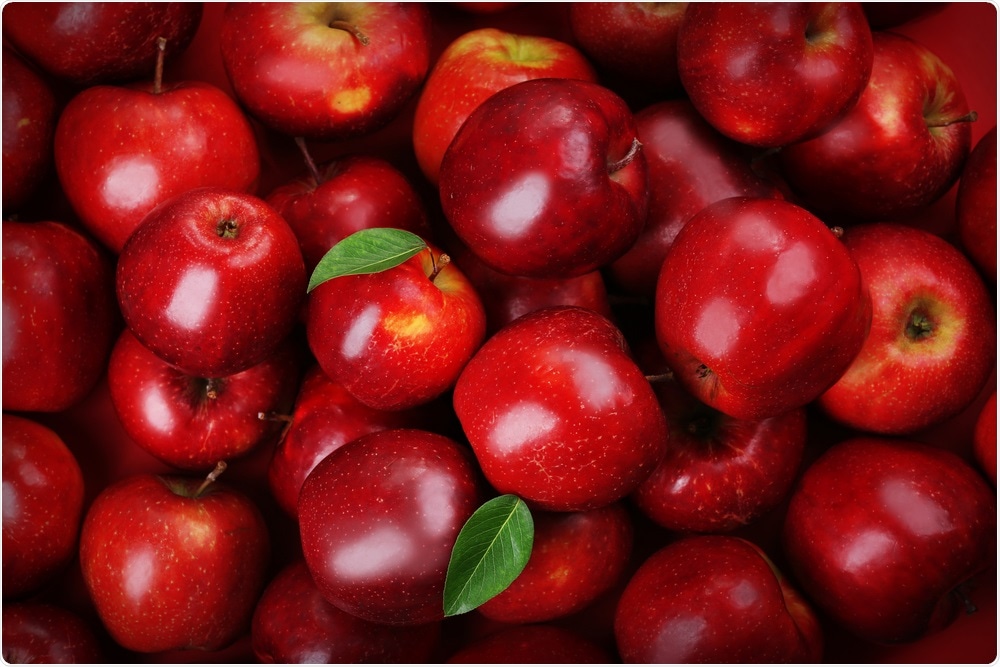According to a new study performed in mice and published in the Stem Cell Reports journal, apples and other fruits contain natural substances that may help trigger the generation of new neurons in the brain, which may have implications for memory and learning.

Apples. Image Credit: Africa Studio/Shutterstock.com
Plants contain chemical compounds or the so-called phytonutrients, such as res epigallocatechin-3-gallate (EGCG) in green tea or resveratrol in red grapes. These compounds can have beneficial effects on various parts of the body, such as the brain.
A research team, including Tara Louise Walker from the University of Queensland, Brisbane, Australia, Gerd Kempermann from the German Centre for Neurodegenerative Diseases, Dresden, Germany, and collaborators, have discovered that high concentrations of apple phytonutrients trigger the production of new brain cells, a mechanism known as neurogenesis.
The new study revealed that lab-grown adult mouse brain stem cells produced more brain cells and were shielded from cell death when they were mixed with dihydroxy benzoic acid (DHBA) or quercetin—phytonutrients typically found in apples.
Subsequent mice experiments demonstrated that in distinct adult brain structures linked to memory and learning, stem cells multiplied and produced more neurons when high doses of quercetin or DHBA were given to mice.
The effects on neurogenesis were similar to those observed following physical activity, a familiar stimulus for neurogenesis. The new study indicates that natural fruit compounds, like DHBA, quercetin, and potentially others, may work in synergy to support neurogenesis and brain function when administered in high concentrations.
However, more research would be needed to find out if these compounds and other phytonutrients can improve cognitive function and learning in humans and in animal models.
Source:
Journal reference:
Ichwan, M., et al. (2021) Apple Peel and Flesh Contain Pro-neurogenic Compounds. Stem Cell Reports. doi.org/10.1016/j.stemcr.2021.01.005.